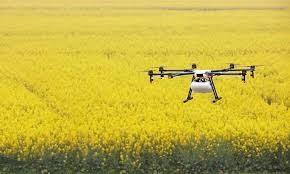ORM Agribusiness Consultant Jane Foster attended the LBS/NORTHLink Innovation in Food and Agribusiness Forum held at the La Trobe University Business School, Bundoora in late 2018.
The key objective of the Forum was to showcase innovative and sustainable global food production systems and agribusiness. The forum was an opportunity to promote innovations in development across the supply chain for food production and agribusiness particularly with reference to;
- changing consumer demands in food-related industries
- emerging markets and the power of data analytics
- how science research impacts on food production and agribusiness models
- how advanced technology impacts food manufacturing
- the future of robotics and AI in food production systems
- digitisation of supply chains and the effect of the Internet of Things (IoT) on Australia’s food and agribusiness
- how new business tools and models (lean canvas, platform economics and blockchain etc.) can be applied to Australia’s food and agribusiness value chains.
The concept of the forum was to bring linkages between science, research, agtech and industry through researchers and industry participants engaging with each other across a range of activities including: presentations from industry leaders and world class researchers combined with a range of masterclasses and a regional panel to conclude the forum. A strong focus was on digital disruption which will be impacting the food supply chain over the short to medium term.
I was invited to participate in the regional panel at the culmination of the event and review. It was an interesting collaboration of regionally based industry participants. This was an opportunity to relate the information from the prior sessions, to on the ground industry challenges in regional markets. A diverse range of experience across the panel discussed the future for servicing niche markets, the challenges of emerging industries in comparison with the challenges of the mature markets of bulk commodity production.

A key challenge for the emerging industries such as pharmaceutical cannabis was the unknown regulatory restrictions which could be applied at a National or International level. Government intervention through regulation of the industry could have serious ramifications for future viability. Participants in that industry are currently creating and building businesses by taking a position on how they believe the regulation may be applied, an error in their assessment could spell the end for their business venture. There are also several producers who are vying for position in the industry and the capacity of the industry to sustain the current participants is unknown. The size of the mature market is not yet evident and so again business decision makers are relying on projections and assessments of the global supply and demand dynamics to make long term investment decisions.

Listening to presentations across the two days reinforced to me that technology developments must focus on delivering cost benefits for agribusiness to support the continued viability of primary production in the Australian market. Broad acre applications of inputs need to become more refined and targeted to drive down the costs of production in the Australian grain industry. This needs to be led by the synthesis of artificial intelligence and sensing technologies which can provide real time feedback on nutrient stress, disease risk and pest activity in crops for the active management towards the crops maximum yield potential at the most efficient cost of production.
The development and commercialisation of artificial intelligence has the potential to reduce the impact on productivity which is evident through the variation in management experience and capability in farm businesses. Lost productivity arising from sub optimal management decisions is difficult to quantify across the industry. At an individual farm level it can have significant impact on the profitability of the individual enterprise. Sensing technology and AI could go some way to bridging the profitability gaps witnessed between farming enterprises which can be attributed to differences in management capacity and capability.
Agricultural production is on the precipice of a wave of new technologies, there is a huge buzz around the Agtech space. Many will fail to achieve commercialisation, those that make it to market and achieve success will be the applications that deliver practical and cost-effective solutions for producers. When real and meaningful cost savings can be achieved through technology adoption and contribute to increased profitability this is a win-win for industry and producers.
For more information contact Jane Foster at Jane.Foster@orm.com.au